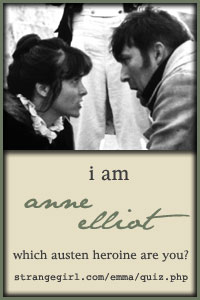In the midst of winter, I found there was, within me, an invincible summer. And that makes me happy. For it says that no matter how hard the world pushes against me, within me, there’s something stronger—something better, pushing right back.
—Albert Camus, The Stranger
I
have always loved that thought, identified with it. And now, I guess I'll learn if that is really
true of me or just a fond illusion.
I'm
already finding myself torn between despair and a deep need to go on finding
and inviting light between the cracks. A
need, that is, and determination to be calm and collected, to give what I
can—cheer and comfort and quiet normality (a loaded word, I know, which arrogantly
takes a lot for granted, maybe wrongly, but for me—for now—for better or for
worse—expresses hope and my philosophy and religion, the grace of living in the
moment and being well and whole and awe-struck and joyful in the moment). I'm
torn between the acceptance that everything has changed (or at least widespread
assumptions been upended, and a different view of reality brought to the
foreground), and an outright/outraged rejection of altering what I hold dear,
of accepting what's foreign to my nature, foreign to acquired and inherited
wisdom, foreign to the great good world of nature and culture I love so well.
I'm
torn.
In
the sense of the following poem, I don't have to decide, or choose, one way of proceeding
over another. The way I am changes all by
itself, continually. Normality, or
"the familiar," isn't fixed any more than I am. I can hold onto nothing from this moment to
the next. I'm not torn in two, torn
between yes and no, between being the passionate dreamer and the wan waker-up. I am a continuum of feelings in response to a
continuum of experiences.
Red Berries
Again the pyrocanthus berries redden
in rain,
as if return were return.
It is not.
The familiar is not the thing it
reminds of.
Today's yes is different from
yesterday's yes.
Even no's adamance alters.
From painting to painting,
century to century,
the tipped-over copper pot spills
out different light;
the cut-open beeves,
their caged and muscled display,
are on one canvas radiant, pure;
obscene on another.
In the end it is simple enough—
The woman of this morning's mirror
was a stranger
to the woman of last night's;
the passionate dreams of the one who
slept
flit empty and thin
from the one who awakens.
One woman washes her face,
another picks up the boar-bristle
hairbrush,
a third steps out of her slippers.
That each will die in the same bed
means nothing to them.
Our one breath follows another like
spotted horses, no two alike
Black manes and white manes, they
gallop.
Piebald and skewbald, eyes flashing
sorrow, they too will pass.
—Jane Hirshfield
And in Rilke's sense, in The Sonnets to Orpheus, being torn (into
pieces) is ultimately positive, healing, life-affirming.
Over
and over by us torn in two,
the
god is the hidden place that heals again.
We
are sharp-edged, because we want to know,
but
he is always scattered and serene.
(XVI,
Second Part)
Oh you lost god! You inexhaustible trace!
Only
because you were torn and scattered through Nature
Have
we become hearers now and a rescuing
voice.
(XXVI,
First Part)
—Rainer Maria Rilke, The Sonnets to Orpheus, translated by
Stephen Mitchell
So
if I'm torn, over and over, maybe I will be the stronger for it. Ultimately serene, with that invincible
summer (the hidden place of healing) in all of my scattered pieces.
image:
Torn Leaf, randomwallpapers.net




















No comments:
Post a Comment